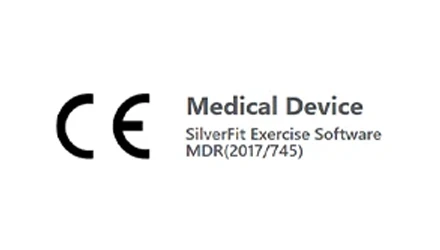The SilverFit systems are tailored to the needs of (frail) elderly people. Exercising gross motor skills, muscle strength, wheelchair agility, ADL and doubles tasks promote independence and fitness maintenance. This can be done individually or in groups to boost motivation and social contact.
Prevent a sedentary lifestyle. Encourage rehabilitation, playfully promote health or function preservation of mentally disabled people through exercise and cognitive challenge.
Mobilise patients in preparation for surgery and to reduce the risk of readmission within neurology, geriatrics, renal dialysis and in Intensive Care.
Increase compliance and motivate to move longer in the rehabilitation pathway. Through visualisation of exercises and positive motivation, challenge for improvement is offered.
* With the exception of SilverFit Alois

Get the most out of your SilverFit system with a service agreement.
Financing a SilverFit system can be approached in different ways, depending on the financial capabilities and preferences of the organisation. Four common financing options are discussed below. SilverFit can further advise on the best-fit solution when applying for financing.
Includes one year of free support.
A monthly fee including service agreement.
Spreading the costs over a period of 3 to 5 years.
SilverFit is happy to help set up fundraising campaigns.